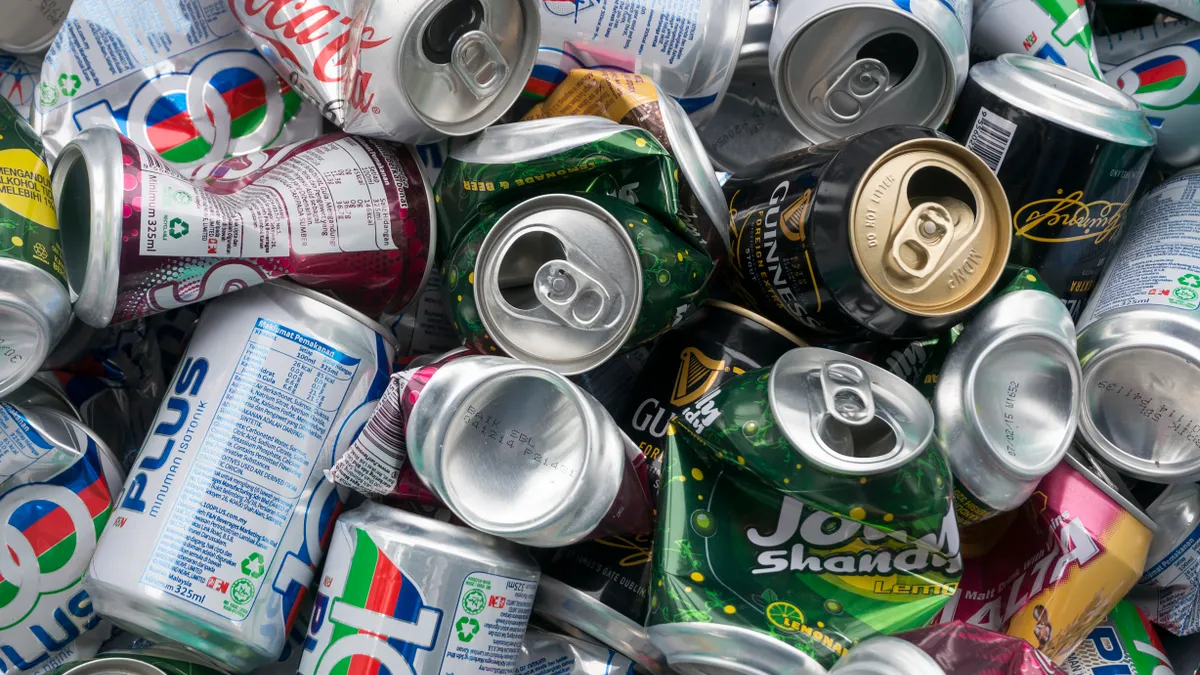UPDATE, June 23: Jennifer Merriott, a resident of Forth Smith, AR, and her attorney Whitfield Hyman have filed a lawsuit against the City of Fort Smith following the city's months-long decision to send recyclables to a landfill while still allegedly charging a monthly recycling fee, as reported by 5 News Online. Hyman told 5 News he and Merriott believe it was a "misuse of public funds" and hope to get residents reimbursed.
Hyman plans to serve the city with the lawsuit paperwork today, according to 5 News.
UPDATE, June 21: The Fort Smith, AR Board of Directors voted 4-1 to approve an agreement for a recycling contract with Third Rock Recycling and its partner Pen Sales, as reported by Arkansas Online. The two-year agreement will cost the city an estimated $14,000 per month. The city also has an option to eventually extend the contract for a third year.
According to City Administrator Carl Geffken, the contract will allow recyclable material that was previously headed to the landfill to instead be collected and baled by Third Rock, then later transferred to a Pen Sales facility.
The city is still developing a long-term solution to process recyclables within the city. After the agreement is signed, Fort Smith, along with Third Rock and Pen Sales, will work to acquire a single-stream sorting line. If this is purchased, which would allow for local processing, the city would not pay for Third Rock to take recyclables, but instead Third Rock would pay $10 a ton for the material, according to Arkansas Online.
UPDATE, May 17: The Forth Smith, AR Board of Directors has indefinitely postponed a vote to stockpile recyclables at the local landfill until the city finalizes a recycling contract, as reported by 40/29 News. The board will reassess the issue on May 23, though officials had made previous assurances that a recycling plan would be in place by then.
In order to stockpile the materials — which will keep them from being mixed in with refuse — the city will first need a permit from the Arkansas Department of Environmental Quality. The materials will also need to be kept dry, away from dirt and out of the way of other operations.
UPDATE, May 12: Mark Schlievert, the sanitation director of Fort Smith, AR since April 2016, has been fired following recent revelations that the city's recyclables have been going to a landfill for the past 10 months, as reported by the Times Record. While city officials confirmed that Schlievert had been terminated they didn't provide any additional information. At least one local council member said he found it unfair to put responsibility on one person when this was an ongoing practice that others were aware of.
Though the fact the city was still spending money to send out a separate fleet of seven recycling trucks was seen as problematic. Fort Smith's deputy city administrator told the Northwest Arkansas Democrat-Gazette that this had cost between $300,000 and $340,000 over the past 10 months. While the trucks were also used to collect yard waste, it's possible that more efficiency could have been achieved by collecting everything with the existing fleet of refuse collection vehicles.
Dive Brief:
- Residents of Fort Smith, AR learned this week that all of their recyclables have been going to a landfill since November 2016. The information was shared by City Administrator Carl Gefken, who said the city's efforts to find an alternative solution in the months since have been unsuccessful so far, as reported by the Times Record.
- Following the expiration of a processing contract with local company Smurfit KAPPA in 2014, Fort Smith had been sending its recyclables about 60 miles away to GreenSource Recycling in Clarksville at no cost other than transportation. That facility closed its single-stream line in October 2016, leaving Fort Smith with no immediate options.
- City officials said they have been looking for new options that wouldn't require them to raise prices for residents. Recycling services are currently included in the $13.28 monthly fee paid by each household for all collection services. One possible option is to contract with Marck Industries, but negotiations are ongoing.
Dive Insight:
City officials said they weren't trying to hide anything from residents and only withheld the information to avoid a lapse in participation ahead of eventually finding a solution. Based on experiences in other cities, it can be hard to regain or improve on existing participation levels if multiple changes are made to a recycling program during a short period of time.
It's not unheard of for source-separated material to end up in a landfill or waste-to-energy facility, but that usually happens for other reasons. Sometimes this occurs because waste is mixed during collection, as seen in Oregon last year, or because a fire or other incident shuts down a facility, as seen in Texas. While Fort Smith residents weren't paying any extra for the service, the fact that they weren't made aware of what was happening for months could reinforce existing distrust or confusion about the industry among some people.
Fort Smith has indicated that teaming up with other municipalities or local waste management districts for a regional solution is the next step. The recent experiences of local governments in other parts of the country have shown this can be successful. Steady demand for recycled feedstock in the Southeast could help make the financial case more appealing for all involved if they can assemble the initial capital costs required to build a facility.















